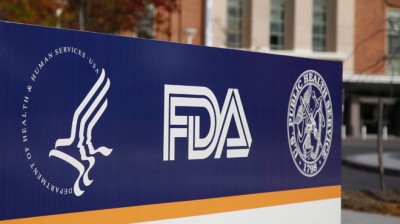 Opposition from small farmers has forced the Food and Drug Administration (FDA) to revise controversial new food safety regulations. Critics charged the regulations would have made organic and sustainable farming nearly impossible.
Opposition from small farmers has forced the Food and Drug Administration (FDA) to revise controversial new food safety regulations. Critics charged the regulations would have made organic and sustainable farming nearly impossible.
The new rules were an attempt to stop the spread of foodborne illness by enforcing the Food Safety Modernization Act. Advocates of traditional sustainable agriculture felt the rules were too excessive and restrictive.
“You spoke. We heard you.” Michael R. Taylor, the FDA’s deputy commissioner for foods and veterinary medicine, wrote in a blog post. The policy change was prompted by a series of meetings with farmers and others across the country.
Conversations with the farmers convinced Taylor and others that the proposed rules were impractical and not enforceable. In response, the agency has drafted a new set of proposed rules that should be published for public comment by early summer.
“And because of the input we received from farmers and the concerns they expressed about the impact of these rules on their lives and livelihood, we realized that significant changes must be made, while ensuring that the proposed rules remain consistent with our food safety goals,” Taylor wrote.
New Survival Seed Bank™ Lets You Plant A Full Acre Crisis Garden!
Why the Farmers Objected
The main rules that farmers disliked were:
- A provision that would have required fencing to completely separate livestock such as cattle and sheep from wildlife. That would have made the grazing of cattle on natural pastures virtually impossible. It would have also eliminated open-range grazing which is common in the Western United States.
- A rule requiring the testing of organic manure which would have made it almost impossible or prohibitively expensive to use that natural fertilizer.
Neither Taylor’s blog nor an FDA press release stated how the rules would be changed. The public will have a chance to comment on the new language before the rules are adopted.
The FDA went to great lengths to gather information and get input from farmers and others, press reports indicate. The agency is obviously aware of public opinion and trying to work with it.
Farmers Influenced FDA’s Actions
Some of the FDA’s research and outreach efforts in this matter included:
- Travel to 20 states
- Travel to Europe and Mexico
- Tours of large and small farms
- Meetings with farmers, including organic farmers and Amish farmers.
- Meetings with consumer groups
- Meetings with advocates of organic farming.
“In our travels, we saw first-hand how everyone is committed to food safety,” Taylor wrote. He noted that his team had many meetings with family farmers, some of whom have worked the land for generations.
The new rules will presumably reflect the input that Taylor and his team received from the farmers.
The FDA’s change of action and willingness to listen to the farmers and others is obviously the result of public pressure. This proposed rule change shows how citizens can influence the political process — and get even bureaucrats to change their actions. Maybe other government agencies will follow the FDA’s lead.
Sign up for Off The Grid News’ weekly email and stay informed about the issues important to you
 Off The Grid News Better Ideas For Off The Grid Living
Off The Grid News Better Ideas For Off The Grid Living




